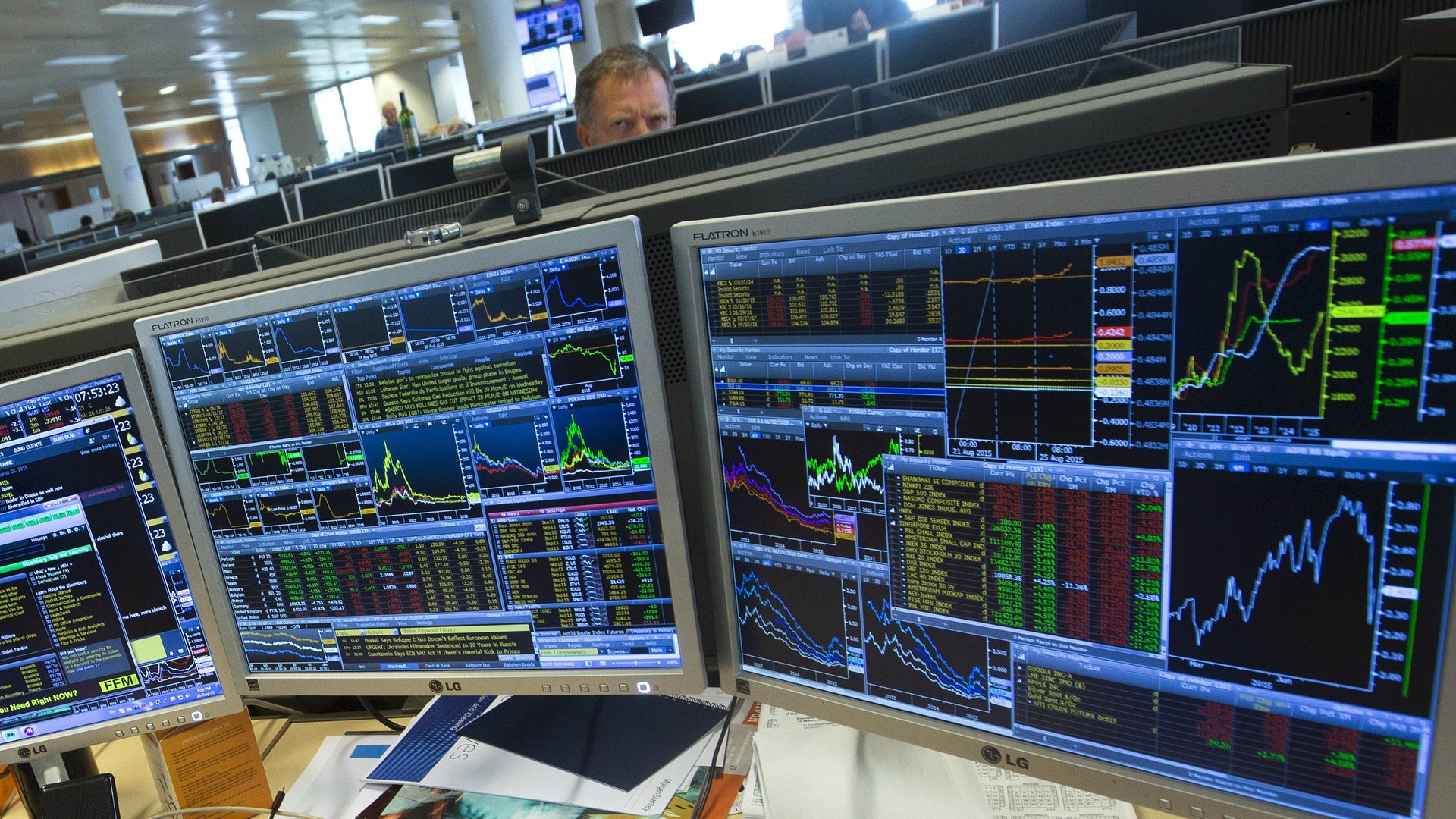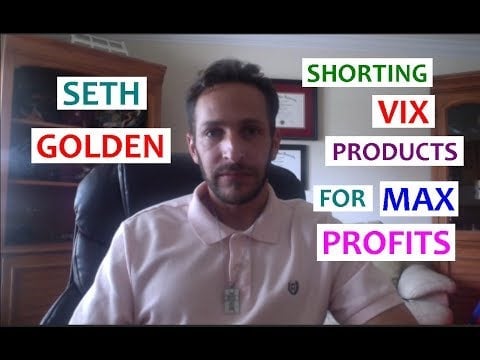A day-trading millionaire says he isn’t fazed by his favorite strategy blowing up
Seth Golden’s moment of fame came this summer, when the New York Times profiled him: The former Target logistics manager said he had made millions of dollars by betting on volatility—or more precisely, a lack of it. Since then, other people have wanted to know how they can get rich on this once-esoteric trade, too.


Seth Golden’s moment of fame came this summer, when the New York Times profiled him: The former Target logistics manager said he had made millions of dollars by betting on volatility—or more precisely, a lack of it. Since then, other people have wanted to know how they can get rich on this once-esoteric trade, too.
“I’ve been inundated by all different classes of investors since that time,” Golden said in an interview with Quartz. He launched a trading website at the end of last year that features a media outlet and a social platform. Golden said it allows him to continue trading, including betting on declines in the VIX index, colloquially known as the “fear gauge.”
This trade came unhinged this week as markets plunged, causing prices to whipsaw in record-breaking fashion. Yesterday, gauges that measure volatility, like the Cboe’s VIX index, had their biggest one-day percentage moves ever. The VIX tracks stock options tied to the S&P 500 index and is used to bet on how wild (or subdued) investors expect the equity market to be in the next month. It had recently traded near historic lows, and in an unusually narrow range.
Betting on volatility to decline is like picking up nickels in front of a steamroller, or so the saying goes. Two of the most popular ways to do it—the VelocityShares Daily Inverse VIX Short-Term ETN (ticker: XIV) and the ProShares Short VIX Short-Term Futures ETF (SVXY)—fell by 14% and 32% during regular trading hours yesterday, and then plunged another 80% in after-hours trading, according to ETF.com. Together, the products had attracted about $4 billion in assets before the carnage; investors’ holdings are worth considerably less today.
“These people were picking up pennies,” said Altaf Kassam of State Street Global Advisors. “You can get wiped out in a day.”

Golden, who lives in Florida, said he lost money on Monday, but it wasn’t anything he hasn’t experienced before. He said was able to hedge his positions in case the pandemonium persisted and had enough money to continue buying and selling. The main exchange-traded funds that are tied to inverse volatility were halted today after heavy losses, and XIV will essentially be liquidated (pdf).
What changed? There are several theories.
One is that central banks like the Federal Reserve have lulled markets into a false sense of security. The US central bank has propped up asset prices by lowering short-term interest rates and buying trillions of dollars of bonds to stabilize the markets after the financial crisis. As bond yields decline and the supply of assets shrinks, investors have been forced into riskier securities. That may have driven investors to buy equities en masse, with little differentiation or preoccupation with the risks.
Another theory is that the bets on volatility themselves managed to drive the VIX index lower, as money poured into assets like the inverse exchange-traded funds mentioned above. Credit Suisse runs the VelocityShares fund (XIV), and likely bet against (shorted) VIX futures to hedge its position. As the Swiss bank shorted more and more futures to keep up with the assets pouring into its fund, the VIX gauge itself declined correspondingly.
Both of those factors are now fading (spectacularly so, in the case of volatility-linked funds). Just about every economy around the world is growing, and rising wages in America have led some to believe that inflation will lead to more aggressive rate hikes than previously expected, alongside the gradual unwinding of the Fed’s $4.4 trillion balance sheet.
Overall, the market malaise may be short-lived because the economic underpinnings are strong, Kassam said. The Fed will tighten its policy so gradually that it will be “more boring than watching paint dry,” he said. Massive spikes in volatility probably won’t become the norm.
And an upshot to the recent violent moves is that derivatives markets may have rebalanced during the frenzy of trading. Instead of futures pressuring the VIX the ever lower, the balance may now be closer to neutral or even biased to higher volatility readings.
As for Golden, he says he appreciates the risks of betting against volatility and is taking a more measured approach this year, as making money on the VIX will be increasingly difficult: “That trading style or philosophy needs to be modified for the average trader.”